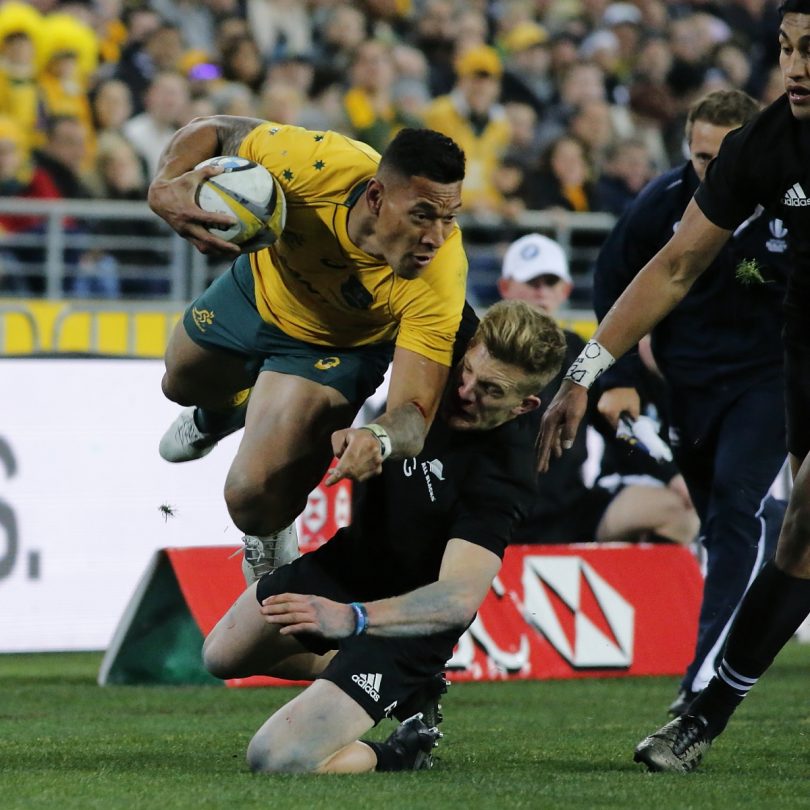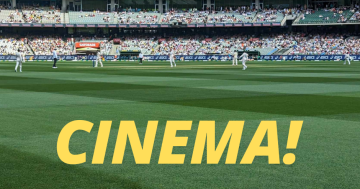
How would Israel Folau’s case be handled at a grassroots level in Canberra? File photo.
As the fall out continues at a national and international level over a range of issues concerning player behaviour, free speech and genetic makeup, it is becoming increasingly clear that there has never been more division over community expectations.
Rugby Australia acted on Israel Folau, saying his views don’t reflect those of the national governing body. And surely concerns about a sponsor backlash would have influenced the decision.
Broadly though, Folau’s publicly expressed views on homosexuality are at odds with the majority of open-minded Australians. His views could also be considered harmful, given his status and influence, particularly for young people who are establishing their identity.
The question of freedom of speech also becomes a factor as professional sports encourage their stars to reach out to their fan base to reveal more about themselves and engage through social media in particular.
So how would this be handled at a grassroots level in Canberra? What would happen if somebody involved in local sport decided to sprout homophobic views publicly on social media?
Unless it snowballed into a media issue, there would be little in the way of a sponsorship backlash and pressure on the sport to exclude them. More than likely the sports and teams would look to deal with it internally. The player might be forced to front his or her teammates to offer an explanation and discussion, as a form of mediation, would follow and the sport would hope that is the end of it.
Then there is Caster Semenya. This is such a difficult story, particularly when we are encouraging sportspeople to compete, drug-free, in order to make competition as fair as possible. Now Caster Semenya is being asked to take drugs to reduce her naturally occurring high levels of testosterone. What a dilemma. What does this mean for local sport? Is there now a hard and fast rule in local sport about naturally occurring, high levels of testosterone among female athletes? The answer is effectively ‘no’ at the moment.
And what about the Jack de Belin issue? How would that be handled at a grassroots level in Canberra? In De Belin’s case, the NRL stood De Belin down after he was charged with the aggravated sexual assault of a young woman. He has pleaded not guilty and believes that the NRL has no right to stand him down, as the court decision has not been made. The NRL and ARL Commission stood De Belin down under the NRL’s ‘no fault’ rules.
At the local level, would the player be stood down or would the player be allowed to compete pending the outcome of a court process?
What is effectively happening is that at a national and international level sports are, at times, making decisions that are difficult to translate to the local level.
Local sports are constantly educating young sportspeople about social responsibilities, alcohol and drug awareness and social media protocols. But how effective can they be in actually stopping people from taking part in sport unless they dope or commit a violent act?
Governance at the local level will need support if the expectation is that decisions at the national and international level are to be reflected at the grassroots.
Original Article published by Tim Gavel on The RiotACT.









